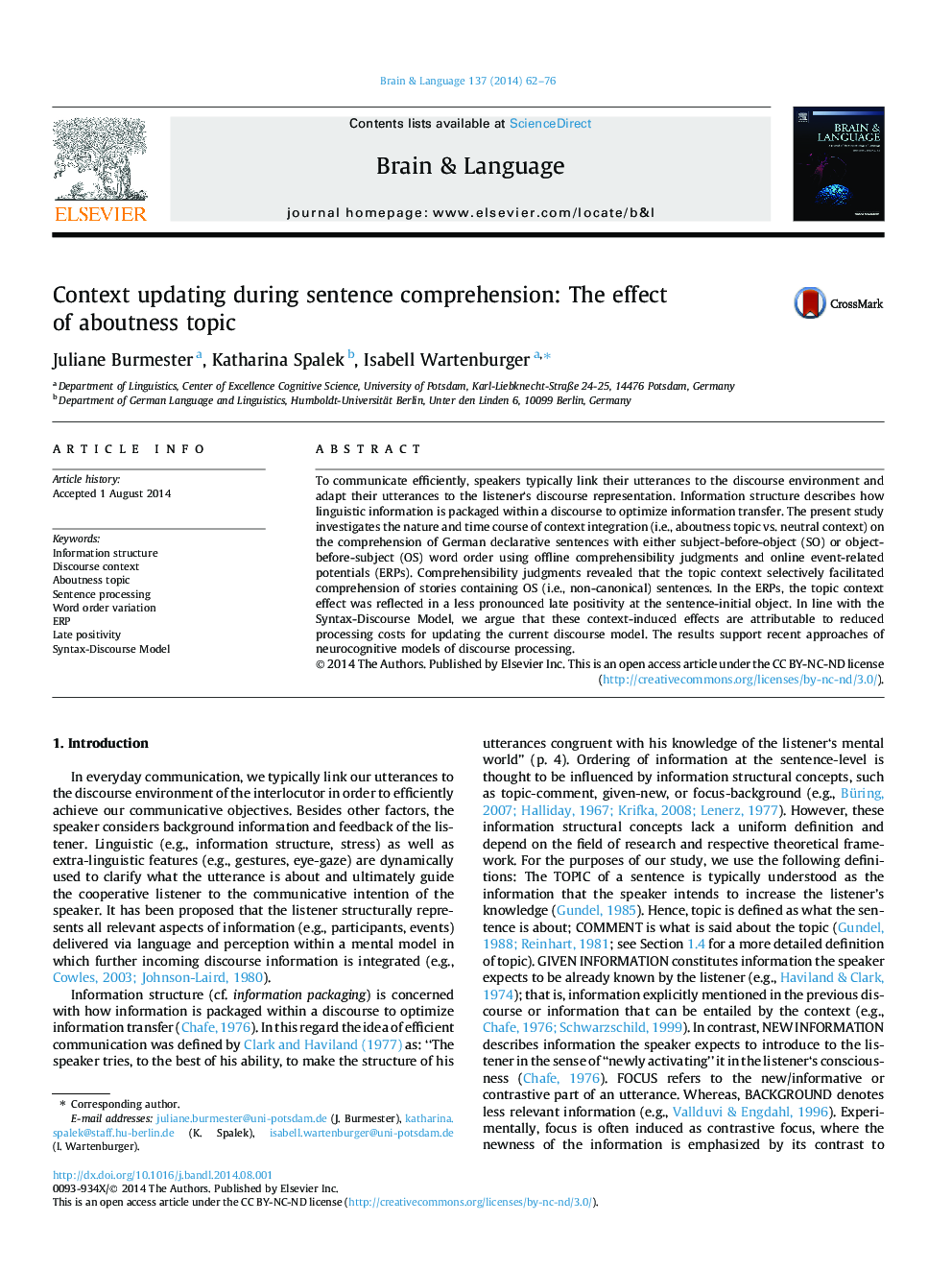| Article ID | Journal | Published Year | Pages | File Type |
|---|---|---|---|---|
| 7284679 | Brain and Language | 2014 | 15 Pages |
Abstract
To communicate efficiently, speakers typically link their utterances to the discourse environment and adapt their utterances to the listener's discourse representation. Information structure describes how linguistic information is packaged within a discourse to optimize information transfer. The present study investigates the nature and time course of context integration (i.e., aboutness topic vs. neutral context) on the comprehension of German declarative sentences with either subject-before-object (SO) or object-before-subject (OS) word order using offline comprehensibility judgments and online event-related potentials (ERPs). Comprehensibility judgments revealed that the topic context selectively facilitated comprehension of stories containing OS (i.e., non-canonical) sentences. In the ERPs, the topic context effect was reflected in a less pronounced late positivity at the sentence-initial object. In line with the Syntax-Discourse Model, we argue that these context-induced effects are attributable to reduced processing costs for updating the current discourse model. The results support recent approaches of neurocognitive models of discourse processing.
Related Topics
Life Sciences
Neuroscience
Biological Psychiatry
Authors
Juliane Burmester, Katharina Spalek, Isabell Wartenburger,
